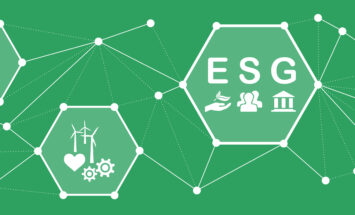The phrases ESG (Environmental, Social, and corporate Governance) and sustainability are sometimes used interchangeably, which is understandable given their close relationship and the fact that ESG is increasingly being used as an acronym for corporate sustainability.
Let’s look at the parallels between the two and try to explain the growing trend of adopting ESG even when it isn’t related to investment reporting.
The relationship between ESG and sustainability
Both ESG and Sustainability have the same overarching goal: to enhance business practises while reducing any bad effects on the environment, and to gain favour with investors, customers, and regulators in the process.
Both involve three pillars: they both focus on environmental and social issues, although the G in ESG stands for governance while the third pillar in sustainability is economic. When it comes to sustainability, the problem is that the definition has been weakened, and usually overused and applied primarily to environmental concerns.
For example, in KPMG’s 2020 report ‘The Time Has Come,’ only three aspects of sustainability reporting are focused on – biodiversity, carbon reduction, and the SDGs – hardly a broad definition and potentially adding to companies’ confusion about what they should cover when addressing sustainability.
Then there are the large consulting firms that use the two together as a kind of catch-all perpetuating the notion that they’re interchangeable.
However, there are several important distinctions to be made.
Understanding ESG
ESG is a framework for corporate governance as well as investing. It derives from a rising awareness of the need for greater accountability and an emphasis on non-financial reporting among investors. The acronym was originally used in the 2006 United Nations Principles for Responsible Investment (PRI) report, which included the Freshfield Report and “Who Cares Wins.”
Although some regard ESG as a development of what firms may have previously referred to as Corporate Responsibility (CR), it adds rigour in the form of investor scrutiny and public reporting that CR lacked. It also demands corporations to publish their substantial impacts, whereas previously, CR was more of a separate programme of activity carried out in addition to day-to-day operations for many organisations.
ESG criteria are more detailed in terms of scope, benchmarking, and data disclosure, and it is the term preferred and used by financial markets to assess and make responsible investments.
Understanding Sustainability
Sustainability has various definitions, but at its foundation, it is about conducting business in a way that serves current requirements without jeopardising future generations’ needs. Newcastle University’s version is “Enough. For everyone. Forever” and this resonates because of its simplicity.
Sustainability is linked to John Elkington’s concept of the triple bottom line, which states that a company’s success should be measured not only on financial or economic criteria, but also on its social and environmental benefits.
In recent years, the concept of business sustainability has evolved and managed to wrap itself in a degree of haziness along the way. Recently, more organisations have embraced the clarity and structure that they believe ESG provides in favour of the word sustainability.
Fundamentally, the two are so inextricably linked that whether or not it matters which term is employed is often a wholly subjective decision.
Which one is best for my company?
If you work with investors or your company is valued in financial markets, ESG is the way to go. Because that is the language used by the investment world, it makes sense to employ it. However, be careful that doing so creates the assumption that you will measure, report, and be evaluated on your material environmental, social, and governance challenges.
According to some observers, such as Forbes, the idea is that by accepting sustainability as a core value, you may then choose to report on it using the ESG pillars. It would be great news if it were true, if attaining sustainability was at the heart of all ESG frameworks and reporting. Others, however, think that the term’s broad use obscures its meaning and allows asset managers and others to appear to be devoted to sustainability and stakeholder value while their view of ESG may be considerably narrower.
SustainIQ, one of our partners, has created a data platform to assist businesses in measuring and reporting on their overall sustainability commitments.
We will continue to discuss ESG and sustainability as two sides of the same coin, and we will use our knowledge in this area to help clients who wish to be more specific in their language.
Whatever term you want to use, SustainIQ’s all-in-one reporting platform will help you streamline reporting, saving you time and money while boosting the quality of ESG and sustainability data.
Contact us today to learn more about how the SustainIQ platform might help you!
Be the first to know
Get access to our webinars, whitepapers and case studies. You'll be notified when they are ready to freely view and download:
"*" indicates required fields


